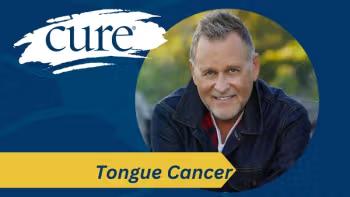
- Summer 2018
- Volume 1
- Issue 1
Working Through Cancer-Related Fatigue
About 40 percent of people with cancer are of working age, and typically have a need to maintain their employment throughout their treatment.
AN ESTIMATED 40 PERCENT of people with cancer are of working age, and those who are employed usually need to stay that way during treatment.
Guy Reynolds knows he is a lucky man, not only because of his response to therapy, but also because he works for a company that provided flexibility while he was going through treatment after receiving a diagnosis of esophageal cancer in 2016. He was 59 years old.
The cancer had already metastasized to his liver, and his medical team was hesitant to give him a prognosis, he says. They told him if chemotherapy didn’t work in six months, he would be moved to a clinical trial for immunotherapy.
“You know, it’s the cutting edge that they’re working on,” Reynolds says. “The doctor said if that didn’t work, then I had six months.”
Now more than 22 months from diagnosis, Reynolds has finished nine months of traditional chemotherapy and three weeks of radiation. He remains on Xeloda (capecitabine), a type of chemotherapy, and Herceptin (trastuzumab), a drug used to treat breast cancer that is human epidermal growth factor receptor (HER) 2-positive. About 20 to 30 percent of esophageal cancers are HER2-positive, meaning they carry the oncogene that Herceptin affects.
“The major problem was the tumor in my liver,” says the married father of three. “It was the size of my fist.” Today his liver tumor is undetectable.
Reynolds says he weathered the chemotherapy well, taking time off from his job as a photo editor for The Dallas Morning News just on the days he had chemotherapy and the day after. Even a bout with an irregular heartbeat brought on by the chemotherapy didn’t keep him down.
Of course, that was before he began radiation.
“I was doing radiation at 9 a.m. and going to work at 9:45 a.m.,” Reynolds says. “By noon I was wiped out. So, I took some short-term medical leave for around 11 weeks.” He returned to work on a split shift that allows him to go home in the middle of the day for a few hours’ sleep.
“After the radiation, they told me that the fatigue would be worse for two to three months,” Reynolds says, “but it’s getting better. I even sat at work today and I thought, ‘You know what, I’m just going to stay here and work straight through.’ And then about an hour later I thought, ‘No, I’m going to go home and take my nap.’”
FINDING YOUR WAY
He was fortunate to find tremendous support at work, especially from his managing editor, who had lost a sister to cancer. Reynolds was even allowed to go for chemotherapy without using paid time off. “They just said ‘go,’ ” Reynolds recalls.
Patients and survivors must find their own ways to cope with fatigue. When employment is involved, creating a customized approach may involve help from family, friends, co-workers and the federal government by way of the Americans with Disabilities Act and the Rehabilitation Act, both of which ensure that people who have or have had cancer are protected against some types of job discrimination. The Family and Medical Leave Act allows 12 weeks of unpaid, job-protected leave for certain family and medical reasons. A study in The Oncologist reported that 75 percent of employed study participants changed their employment status because of fatigue, and 65 percent of patients indicated that their caregivers took at least one day off work in a typical month.
Each patient responds differently to treatment, depending on the drugs used, the length of treatment, whether they receive radiation and whether their place of employment offers insurance and/or is sympathetic. Some people plan their treatment for Fridays so they can rest over the weekend. Consider asking an employer to provide a parking space closer to the office, allow short breaks to rest or arrange for working from home.
Reynolds is approaching his two-year anniversary from the day of diagnosis. He has outlived the median survival and is hoping to be one of those who continues to beat the odds.
Articles in this issue
over 7 years ago
How to Overcome Cancer-Related Fatigueover 7 years ago
Comments From Our Readers on Recent Heal Publicationsover 7 years ago
Post-Cancer Fatigue: The Invisible Wound

